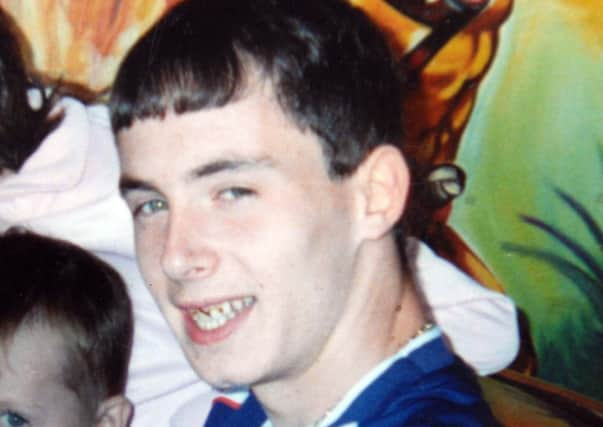Police are accused of inaction at inquest


A lawyer representing the family of 21-year-old Neil McConville, who was shot dead after a police chase near Lisburn in April 2003, have accused the PSNI of “sitting on their hands” in the three months since it received a legal request to check the officers’ service records.
Karen Quinlivan QC reacted angrily after a lawyer for the police told a preliminary inquest hearing at Belfast coroner’s court it could be another three months before the exercise was completed. “That’s completely unsatisfactory and the police service know it,” she said.
Advertisement
Hide AdAdvertisement
Hide AdThe fatal incident unfolded after police started pursuing a car driven by Mr McConville, from Bleary near Craigavon, on the correct suspicion it was transporting a firearm.
At the culmination of the chase at Ballinderry Upper near Lisburn, an officer shot him three times amid fears he would drive over another officer he had already knocked down and injured in his efforts to get away.
Mr McConville was the first person killed by the police since the PSNI replaced the RUC in 2001.
While a subsequent investigation by then police ombudsman Nuala O’Loan found that the officer who fired the fatal shots had been justified, other elements of the operation, in particular its management, were heavily criticised.
Advertisement
Hide AdAdvertisement
Hide AdA previous preliminary inquest hearing was told that two senior officers involved in directing the PSNI operation also had roles in controversial security force killings during the Troubles - incidents the family’s legal team argue are relevant.
A solicitor representing the PSNI, Ken Boyd, explained that each officer involved in the McConville case, some of whom have now retired, would have to be interviewed individually about their past involvement in other lethal force operations, as that information would not be readily found on file.
“At this stage I can’t say how long it would take,” he said. “A number of officers have retired and some have retired out of the jurisdiction.”
Ms Quinlivan insisted there was no “point of principle” that prevented the work being done while the separate judicial review was ongoing.
Advertisement
Hide AdAdvertisement
Hide Ad“They have had it (request from solicitors) from 23rd September and had taken no issue with it,” she said. “But they just sat and waited and now they’re saying ‘we’ll guess (a timetable), just pluck a figure out of the air’? There is no justification that since 23rd September they have sat on their hands and taken no steps.”
Ms Anderson told the PSNI’s legal representatives that she wanted a written indication by the end of the week on what the timetable for interviewing the officers would be.
She said the issue would be discussed further at the next preliminary hearing in the new year.
After investigating the shooting, Mrs O’Loan, now Baroness O’Loan, found that the shooting of Mr McConville had been justified.
Advertisement
Hide AdAdvertisement
Hide AdShe said after an initial collision with police vehicles, officers had ordered him to stop the engine and get out. However, he reversed at speed and struck and injured one of the officers.
The prone officer was then in the vehicle’s path and when Mr McConville changed gear to drive off, a police colleague - fearing the officer’s life was in danger - fired three times.
Mrs O’Loan found the operation had not been managed to minimise the possibility of recourse to lethal force.